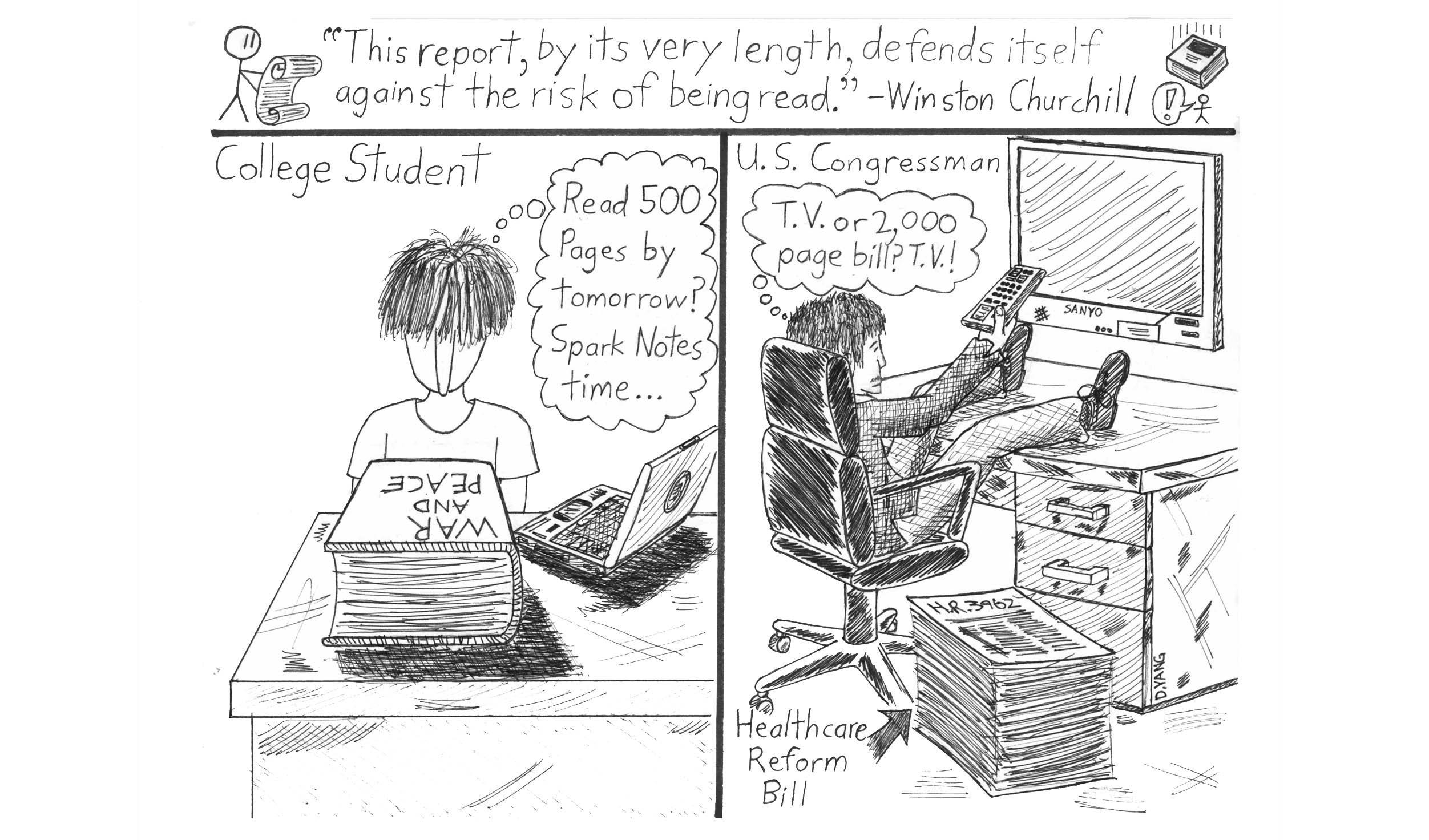 Over the past couple of years, we have heard a lot about bubbles. It was the dot-com bubble that burst in the ’90s. Then, of course, the housing bubble gave way to the 2008 financial crisis. Dare we ask what’s next?
Over the past couple of years, we have heard a lot about bubbles. It was the dot-com bubble that burst in the ’90s. Then, of course, the housing bubble gave way to the 2008 financial crisis. Dare we ask what’s next?
In a sense, we already know. I call it the Democrat bubble. Expectations for supermajority rule by the blue team mounted uncontrollably only to collapse into cynical, intra-party bickering at the hands of unprecedented Senate Republican stall tactics.
What happens post-bubble burst? The experts seek to explain, the policymakers listen to some of them and we end up with an attempt at reform. The Great Democrat Bubble of 2009, at first glance, is no exception. Essentially every political columnist, blogger and commentator has gotten in on diagnosing the problem. Most agree: The filibuster has got to go.
If majority rule were permitted in the Senate, they argue, universal health care and cap-and-trade would be on the books, comprehensive immigration reform would be on the way and the Democrats’ base would still be flying high.
Prognosticators who prescribe dismantling the filibuster are not wrong, just impractical. This clean-up job – unlike those following the bubble bursts of economics lore – will go only so far. There may be a few valiant attempts at reform. Sen. Tom Harkin (D-Iowa) and Sen. Tom Udall (D-NM) have each put forth plans to curtail the filibuster, but neither has any real traction. In the end, wonky tirades on filibuster reform will not, sadly, translate into results.
Why? In many respects, members of the Senate are crazy.
Let’s start with 2008’s biggest loser: Sen. John McCain (R-Ariz.) The senator built his political career on a record of bipartisanship and early leadership on issues like immigration reform and climate change. Now, at the age of 73 – rather than considering normal human undertakings like retirement, or even extraordinary ones like legacy building – the man is retreating from the bold positions that have defined his career to win a primary challenge from a right-wing nut job.
But let’s not look past imbecilic antics on the left. How about Democratic Connecticut Sen. Chris Dodd? The egoism that drove him to move his family to Iowa in 2007 to run a campaign for the presidency amidst a field of Democratic superstars was one of the greatest political miscalculations of the decade.
Senators also exhibit a tendency that could easily be mistaken for obsessive buddy-comedy fandom. Long-serving Sen. Daniel Inouye (D-Hawaii) testified as a character witness for his super-corrupt Republican pal, former Alaska Sen. Ted Stevens. Last summer, Sen. Max Baucus (D-Mont.) held up health care reform because he believed that his friendship with a few Republicans was sufficient to forge a bipartisan deal, even in the face of contrary political headwinds.
And, at the risk of sounding potentially offensive, let me point out Senate narcissism at its worst: the insistence of dying as a sitting senator. In December, health care reform relied upon the health of 92-year-old Robert Byrd (D-W. Va.) And in January, health care reform nearly fell apart completely as a consequence of Ted Kennedy’s passing. Regarding the Senate as both the world’s greatest deliberative body and a retirement home is not only contradictory, it is irresponsible.
These examples all speak to one conclusion. What U.S. senators trust most is not ideology, policy or even loyalty. Rather, they have an absolute confidence in their unique ability to solve the country’s problems.
And that is why filibuster reform stands no chance. Why care about rules when you have the power of personal appeal in your back pocket?
But if not filibuster reform, then what? I have come to the conclusion that term limits are necessary – a necessary evil to be sure – but necessary nonetheless.
A limit of three six-year terms would be a reasonable means to curb a senator’s irrational cult of personality. I also suspect that the filibuster would face a tougher audience among senators not serving life sentences. Witnessing a policy agenda scuttled by procedural motions is immensely frustrating. The ticking clock of term limits may channel this frustration into doing away with the peculiar institution entirely.
There is, of course, a strong argument to be made against term limits. Legislating is a job that requires a particular skill set. As with other professions, experience is a virtue, which is especially the case when the profession happens to be running the United States of America.
Today, however, it is difficult to imagine things could get any worse than the colossal heap of stalled and defunct legislation that the Senate has become. There must be a happier medium than the status quo. To get there, let us burst one of the most resilient bubbles in American history: the great American bubble of Senate arrogance and inaction.
Sam Harbourt is a senior in the School of Foreign Service. He can be reached at harbourtthehoya.com. THE PRAGMATIC PROGRESSIVE appears every other Friday.
*To send a letter to the editor on a recent campus issue or Hoya story or a viewpoint on any topic, contact opinionthehoya.com. Letters should not exceed 300 words, and viewpoints should be between 600 to 800 words.*”








